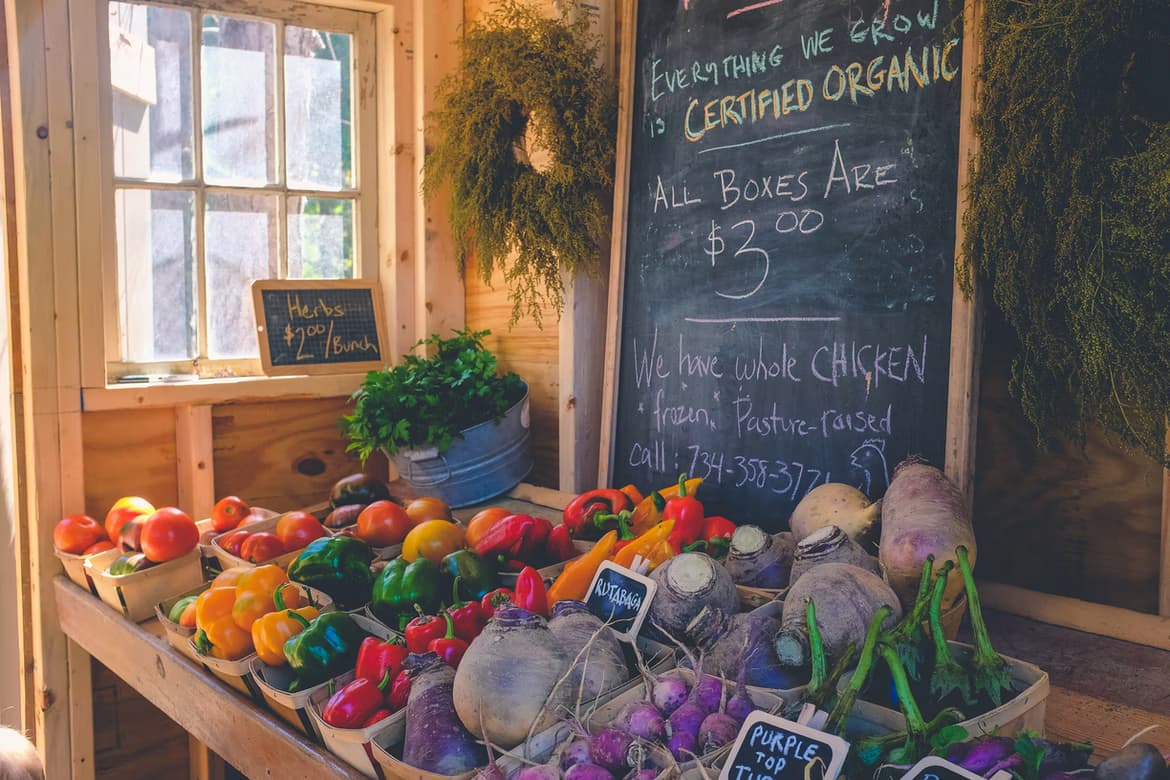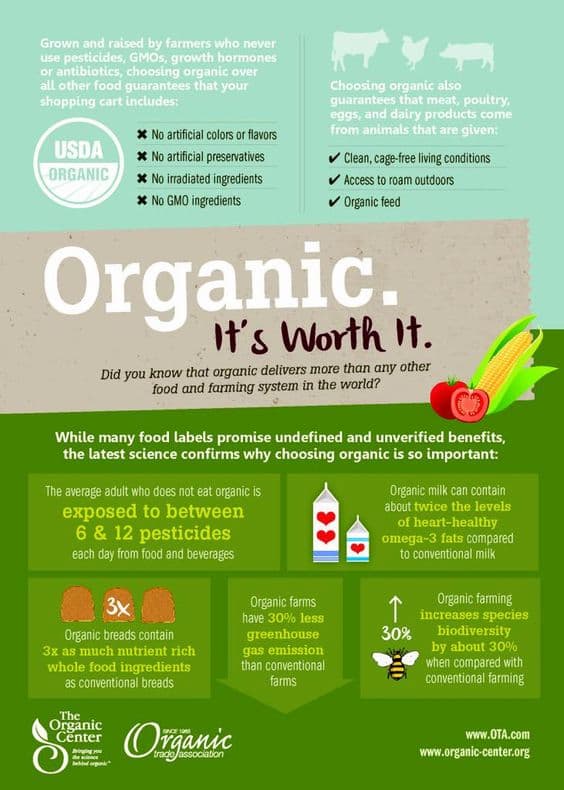
Even though organic fruits and vegetables are becoming more and more common, many people still wonder why they cost so much. Certified organic products are generally more expensive than conventional products because organic farming methods require higher labour costs than conventional farming methods. In contrast to the latter, organic food production involves minimal, if any, pesticide exposure.
Prices for organic produce have been declining over the years, and the gap between conventional produce and organic food is getting smaller. However on a whole, certified organic products are still more expensive.
9 Reasons Why Organic Food Costs More
The price of organic products is influenced by a number of factors. For one thing, organic farmers pay more for labour because they take extra care with every step of their process—not just during planting and harvest. Aside from labour costs, taking soil samples to ensure it meets strict organic farming standards and certification costs are other factors that influence the price of organic produce. The list below, adapted from organicfood.com.au, explains the main reasons that influence the price of organic fresh produce and non-food crops:
- Due to farmers employing the method of crop rotation, they’re unable to produce larger quantities of crops that are most cost-effective for conventional farmers as this method reduces the frequency in which organic farmers can grow profitable crops. Crop rotation is beneficial to the soil as it adds nitrogen to the soil, which benefits succeeding crops.
- Conventional farmers use all of those synthetic chemicals and pesticides that reduce the cost of production as they get the job done faster and more efficiently. Organic farmers do not use chemicals and synthetic pesticides, and therefore have to hire more workers for tasks like hand-weeding, cleanup of polluted water, and the remediation of pesticide contamination. This increases labour time and production costs.
- Organic food supplies are limited compared to conventional food.
- Supply and demand for organic food is relatively lower than that of conventional food. As demand for organic food increases, the costs of production, processing, distribution and marketing will decrease, therefore decreasing the cost for the consumer.
- Organic agriculture strictly adheres to higher animal welfare standards compared to conventional farming practices.
- Organic farmers keep their crops natural and use compost and animal manure, which are more expensive to ship.
- Organic crops, however, are handled and shipped in smaller quantities since organic farms tend to produce less, which results in higher costs. Additionally, organic farms are usually located farther from major cities, increasing the shipping cost.
- Acquiring organic certification can be expensive and organic farmers must pay an annual inspection/certification fee.
- Organic crops take longer to grow because farmers do not use growth hormones or genetic modification.
The Organic Farming Research Foundation explains it well: "The organic price tag more closely reflects the true cost of growing the food: substituting labour and intensive management for chemicals, the health and environmental costs of which are borne by society."
Source: Food Movement
How to Shop for Organic Items on a Budget
Don't let anything stop you from buying organic fruits and vegetables from an organic market. Here are some helpful tips for purchasing healthy organic produce on a budget.
Compare prices
Organic fruits vary in price, so don't buy too quickly. Compare the prices of an organic product sold in online organic stores versus your local farmer's market.
Buy in bulk
When you buy in bulk, the price per unit is lower than if you were to buy several smaller units of the same product.
Buy locally
There's no reason to pay big shipping costs when your local farmer's market has amazing produce at low prices. Plus, you get to support small business owners.
Grow your own food
It sounds daunting, but people have been doing it for thousands of years! Try a few potted herbs on your windowsill if nothing else; you'll be surprised how quickly those little plants grow.
If you really want to buy organic products but are on a tight budget, try some of the methods listed above. It may be more difficult than shopping at your local supermarket, but it is well worth the effort. You'll also notice that you have a much greater appreciation for what you do buy now that you know what went into growing or manufacturing it.
References:
http://www.organicfood.com.au/content_common/pg-thereasonsorganicfoodismoreexpensive.seo
Originally published on May 22, 2017









